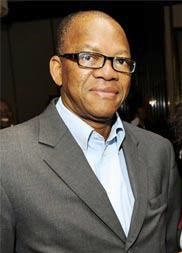
To say that the ANC is at the crossroads is an understatement.
Founded in 1912 as the South African Native National Congress, it later changed its name to the African National Congress, shedding the tag “native” that had become derogative and politically incorrect to the intellectually imbued founders.
This was also done in the quest to accommodate the new wave of nonracial thinking that had seeped into its collective cranium.
As early as in those days, the founding fathers had decided not to paint themselves into the proverbial corner of tribalism and racism.
Almost half a century later, this thinking was finally codified into the Freedom Charter in 1955.
This was a document hastily cobbled by a political grouping not yet in power, so its naive generosity is understandable.
In one of its most prominent chapters, the Freedom Charter declared that “South Africa belongs to all those who live in it, black and white”.
The unintended consequence of such a reckless pledge was to simply ratify invasion and occupation by conquering foreign forces who had arrived in South Africa as early as 1652.
This unwittingly handed over the sovereignty of the country to outsiders and the landless black majority of today remains the consequential victim of such a decision.
This is indicative that the ANC, unlike its other political rivals, such as the Pan Africanist Congress (PAC) and the Azanian People’s Organisation, has always been magnanimously embracing in nature.
It was always a broad church, with its membership open to all races from 1969. That is what attracted the ANC to many a liberal white activist of the time. On the other hand, the PAC was insistent that “Africa is for the African”.
One can, however, add that by “African”, the PAC did not only describe race or colour, but regarded all those who swore allegiance to African ideals, values and norms as African.
In a skewed fashion, the philosophies of the ANC and the PAC on race were almost intertwined, though this was hardly ever acknowledged.
The history of the ANC is rife with many a white cadre who joined the movement and fought alongside their black counterparts in the trenches or offices.
Some, like Joe Slovo, Ruth First and Ronnie Kasrils, even made it into top leadership positions and risked suffering the same consequences as meted out to their black colleagues by the vicious erstwhile apartheid security agents.
Ruth First even became a victim of a letter bomb. On the other hand, the PAC never had any white cadres. The PAC also steered clear of communism, unlike the ANC, where some members embraced it.
Fast-forward to 1994. When democracy finally dawned in South Africa with the ANC at the helm, a notable number of white Cabinet ministers were seen on the benches of the governing party. This was not merely for window-dressing, but a continuation of the ANC’s nonracial policy position.
The Mandela Cabinet had the most: six during his only term between 1994 and 1999. They were FW de Klerk (the last apartheid-regime president), Derek Hanekom, Derek Keys, Chris Liebenberg, Kraai van Niekerk and Joe Slovo.
During former president Thabo Mbeki’s tenure, the number of white ministers was reduced by more than half. In his first term, they were only Alec Erwin and Ronnie Kasrils.
In his second term, which was interrupted by Polokwane and his recall, he had added only one, Marthinus “Kortbroek” van Schalkwyk.
During President Jacob Zuma’s tenure, Cabinet bloated from Thabo Mbeki’s 28 ministers to 36. He only retained two white ministers – Rob Davis and Van Schalkwyk. In his second term, he added Lynne Brown.
Zuma’s tenure is also characterised by the many deputy ministries it created – 37. Of these, five deputy ministers are white – Andries Nel, Barbara Thompson, Luwellyn Landers, Jeremy Cronin and Gert Oosthuizen.
As indicated by Cabinet and parliamentary appointments, the ANC had always exhibited its nonracial stance. That is why one was perturbed when the sands recently shifted during the heated local government elections and race was introduced into the electioneering campaign.
This new narrative was led by none other than the president himself. Suddenly, the leader of the opposition was mocked and castigated as leading a “white party”.
As far as I can remember, race was never a rallying factor in electioneering by the ANC after 1994. This could be a dangerous turning point in a country with a racially polarised past.
Playing on the fears of parties like the DA “bringing back apartheid if they were voted into power” is the same as the apartheid regime playing on the fears of the “swart gevaar” (black danger) to convince its white citizens at the time not to accept or allow black people as fellow citizens.
I urge our president and those in leadership to immediately desist in this practice and give social cohesion a chance. Going forward, South Africa needs to be forever united in its diversity, to paraphrase our Constitution. Above all, the ANC has always been a nonracial movement.
Maisela is a management consultant and published author of the children’s book Thabo, the Computer and the Mouse.




 Publications
Publications
 Partners
Partners








